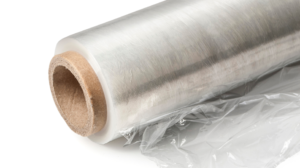State of Waste Management in Canada
Commissioned by Canadian Council of Ministers of the Environment in August 2013 to provide a snapshot of the State of Waste Management in Canada
Waste Management in Canada – What is the Problem?
Canada has a poor record on waste according to a recent international ranking of OECD countries by the Conference Board of Canada (Canada is 17th out of 17)1 . Nationally, the amount of non-hazardous total waste (residential and non-residential) sent to disposal in 2010 was 25 million tonnes2 . This waste is expensive to manage, increases demand on natural resources and represents a missed opportunity to extract value from materials in the waste stream. In 2008 the OECD Council adopted a recommendation that encourages its members to improve resource productivity by promoting environmentally effective and economically efficient uses of natural resources and materials as well as to strengthen capacity for analysing material flows.
“Vision 2050 – The New Agenda for Business Report” 3 by the World Business Council for Sustainable Development lays out a pathway leading to a global population of 9 billion people living within the resource limits of the planet by 2050. It spells out the things that must happen over the coming decade to make a sustainable planet possible: material demand, consumption and production are transformed to match the limits of non-renewable resources; closed-loop recycling – making the concept of waste obsolete is normal business practice, and societies have a circular approach to resources; used products and materials can be reengineered to function again for multiple and distinct purposes or reduced to raw materials for manufacturing other products; greenhouse gas emissions, energy and water use are no longer constraints on the materials industry.
Canada is a long way from achieving the 2050 Vision objectives and the OECD commitments. This report presents the results of a jurisdictional review of current waste management policies, waste reduction initiatives, waste diversion programs, energy from waste initiatives, and waste disposal practices across the country to provide a snapshot of the State of Waste Management in Canada. It was commissioned by CCME in August 2013. The terms of reference for the report were to collect and review data directly from submissions by each jurisdictional member on CCME’s Waste Management Task Group, conduct a literature review for publicly available information, and to conduct interviews. Once information collection was complete, the findings were assessed to identify trends, challenges to and opportunities for improved waste prevention, reduction, diversion, recovery and disposal, as well as potential opportunities for improved performance measurement and reporting of waste management.



